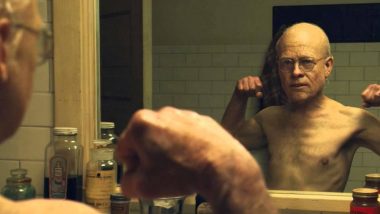Scientists may have discovered how to reverse time, albeit biologically. Usually, the first signs of ageing such as wrinkling and creaking bones make us wish if we could be 18 again. A monumental discovery by a new study “accidentally” proved that it’s possible to reverse your biological age. The subjects of the study were given a cocktail of three common drugs – which included a growth hormone and two diabetes drugs – for a period of a year. The cocktail was a part of the researcher’s efforts to regenerate the thymus gland. But the results of the study were nothing short of stunning. The volunteers who were given the cocktail of the medicines were found to age “backwards.” So it sort of proved that reverse ageing a la Benjamin Button may be possible. The journal Nature published the stunning findings of the study in their latest issue. Anti-Ageing Tips: Follow These Steps For a Younger-Looking Skin At Any Age.
The study showed that the markers of ageing on the volunteers’ genomes actually improved with time. Their immune system, which should have whittled down a little bit with age, had rejuvenated instead. The subjects were all healthy and had managed to slough off 2.5 years from their biological age. Indians Feel Negative Effects of Ageing Faster Than Those in Japan or Switzerland, Finds Study.
The scientists themselves were stunned by the serendipitous results of the study. The geneticist Steve Horvath at the University of California, Los Angeles, told Nature: “I’d expected to see slowing down of the clock, but not a reversal. That felt kind of futuristic.”
But the researchers caution against celebrating too soon. The results of the study are preliminary because the trial was small and wasn’t controlled.
Ageing is an inevitable part of life (so far) for all living beings. It’s a complex biological process where our physiological and cognitive functions decline over time. One way to understand ageing is through epigenetics.
The theory of epigenetic ageing is based on the epigenetic clock, known colloquially as a biological clock. The clock relies on the body’s epigenome, which uses chemical modifications to tag the DNA as we age. Studying these modifications can tell us about the biological age of the person.
(The above story first appeared on LatestLY on Sep 09, 2019 12:49 PM IST. For more news and updates on politics, world, sports, entertainment and lifestyle, log on to our website latestly.com).













 Quickly
Quickly


